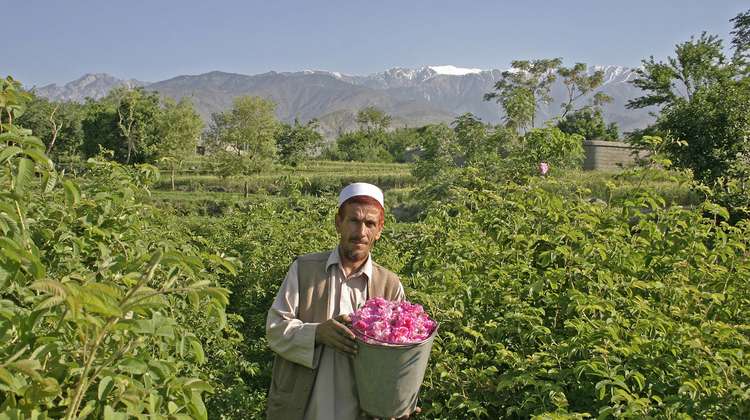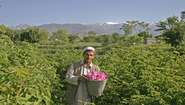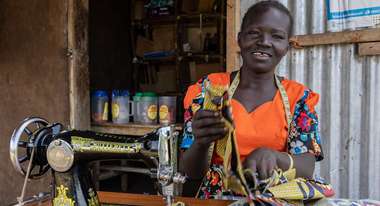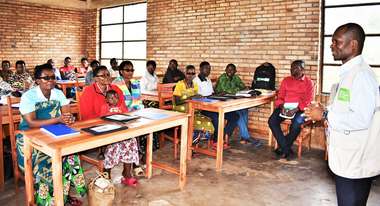Market-Based Approaches
The global community has a grand plan. By 2030, all hunger should be eradicated. Public funds alone are insufficient to finance it – further funds from the private sector must be mobilised.

In order to support people in poorer, rural regions on a long-term basis, Welthungerhilfe (WHH) is adopting, among other things, market-based approaches.
Promoting business ideas in the countryside – two examples
In the region of Nangarhar in Afghanistan, for example, WHH has been supporting rose oil production since 2004. ‘Roses not opium’ was the initial guiding principle. The result today: high-quality rose oil at organic world market quality. Today, the product secures incomes for around 800 families, a former project employee manages the rose oil production as an independent entrepreneur.
13 agricultural training centers in India are another proven test case for social business. With government financial support, the ‘Green Colleges’ offer know-how and services along agricultural value creation chains for socially disadvantaged groups in rural India. These training centers should create competencies in the areas of cultivation, processing and marketing and should be financially self-sufficient – in close cooperation with government and civil society.
Combating poverty with economic methods
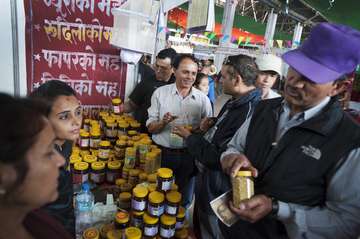
The targeted promotion of trade and services is of vital importance for the development of rural areas. Prerequisites for this include the development of infrastructure – roads, communication and energy, for example. Market-oriented models must guarantee that people living in poverty become actors: as customers and consumers, producers, employees or entrepreneurs. In practice, different business models can apply: for example, new marketing concepts for agricultural production centers, in order to achieve higher incomes. Or the development of a service that is brought to market maturity through cooperation between WHH and a private firm. It is also possible to finance a local enterprise that needs an immediate, modest seed capital but cannot obtain this from local banks due to its small size.
Advantages to integration of market economy approaches
- People gain long-term prospects and sustainable structures – including after the project finishes with no further financial support.
- New financing sources can be opened up and the reach of current activities expanded.
- Innovative business ideas and cooperation with partners from the private sector result in new project approaches, which can then be transferred to other regions and countries.
- This means that WHH can react more dynamically to challenges in a rapidly changing world.
The Welthungerhilfe strategy refers explicitly to the strengthening of new alliances with the private sector and of pro-poor business approaches in connection with the implementation of innovative ideas. The work of the organization is about "transforming aid recipients into proud actors in the form of consumers, producers and/or entrepreneurs".





